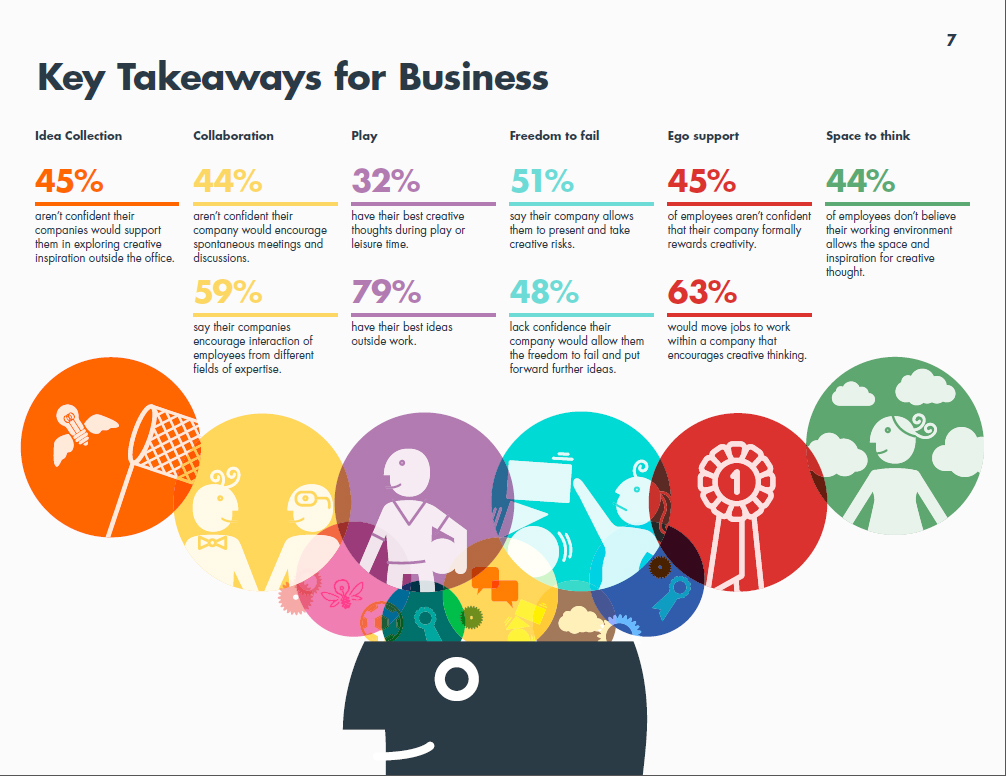There is a significant gap between employees’ desire to be creative and a company’s leadership support for creative thinking, a new study by global brand experience agency Jack Morton has found.
In the Australian market 85% of people agree that creative thinking is critical for a business, with 81% believing it can increase sales. However, only 53% feel their organisations encourage thinking creatively and 60% would change jobs for a workplace that supported creative thinking the Creativity: How Business gets to Eureka! report found. “In business, nothing is more powerful than creativity—it has the potential to inspire change and to transform how we work. None of us can take it for granted,” Josh McCall, chairman and CEO, Jack Morton Worldwide said.
But we need better understanding of what it means to build a strong creative culture that’s supportive of creative thinking. Until we do that business will continue to lose both opportunity and talent.
The time factor appears to be an issue in many companies in Australia as 28% of respondents believe the lack of time is the biggest barrier in creative thinking with just more than half (57%) believing they are able to allocate enough time to think creatively. Looking towards a global perspective, 45% of respondents felt their company wouldn’t support them in creative exploration outside the office where 51% of respondents say their company allows them to put forth and take risks.

The report also looks at how businesses can further support creative thinking inside the office. While on a global scale, 79% of respondents feel they have their most creative thoughts when outside office hours, there are still 21% of people who say they are doing it in the office. The report suggests businesses should support all staff in creative thinking, as anyone can think creatively, along with suggesting businesses should develop practices that align with creative thinking. Check out further discussion on the report here. The survey was conducted online in 11 different markets (UK, US, Germany, Australia, China, Singapore, Hong Kong, UAE, Saudi Arabia, Egypt and Brazil) with more than 7000 respondents aged over 18.








